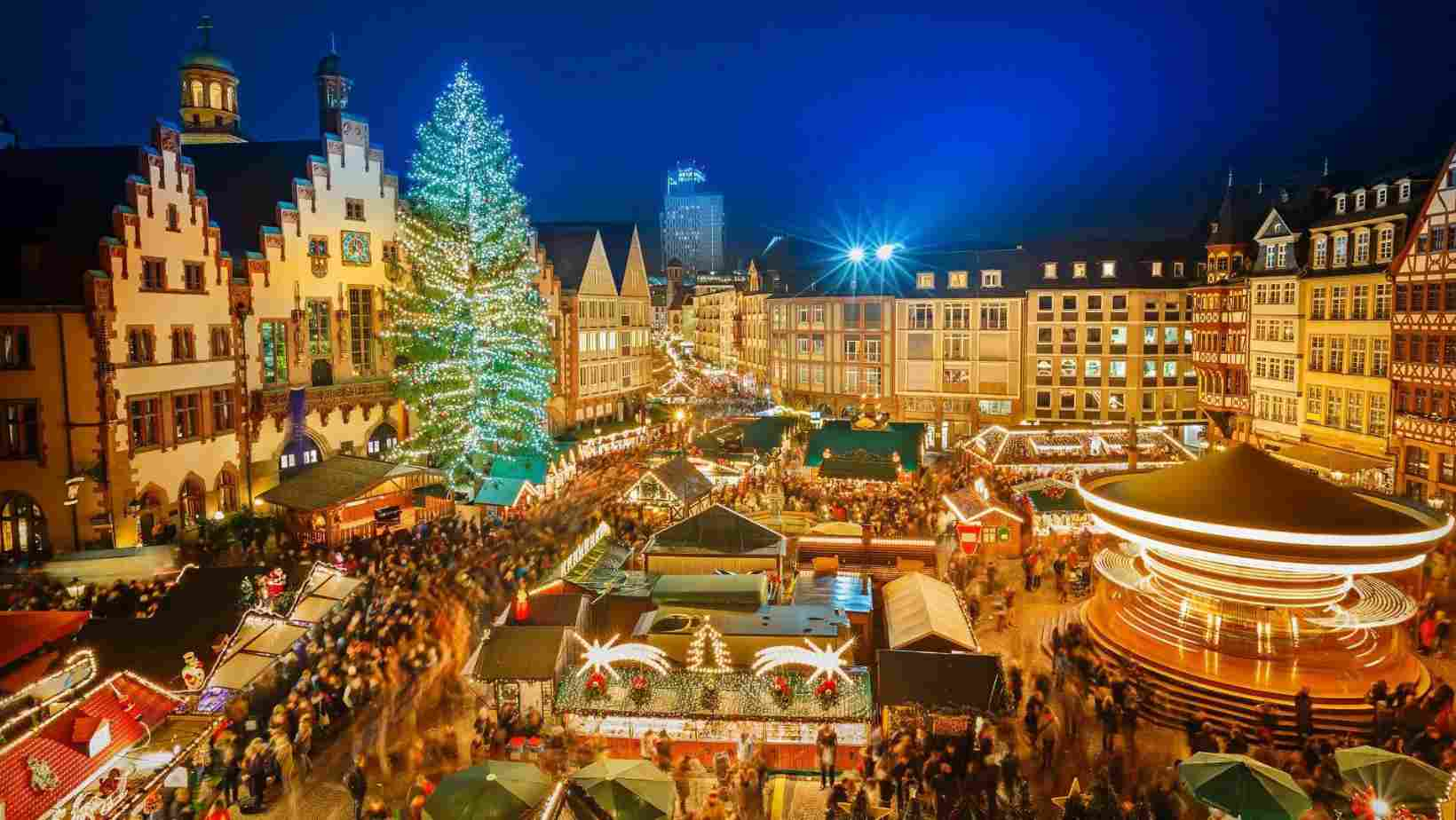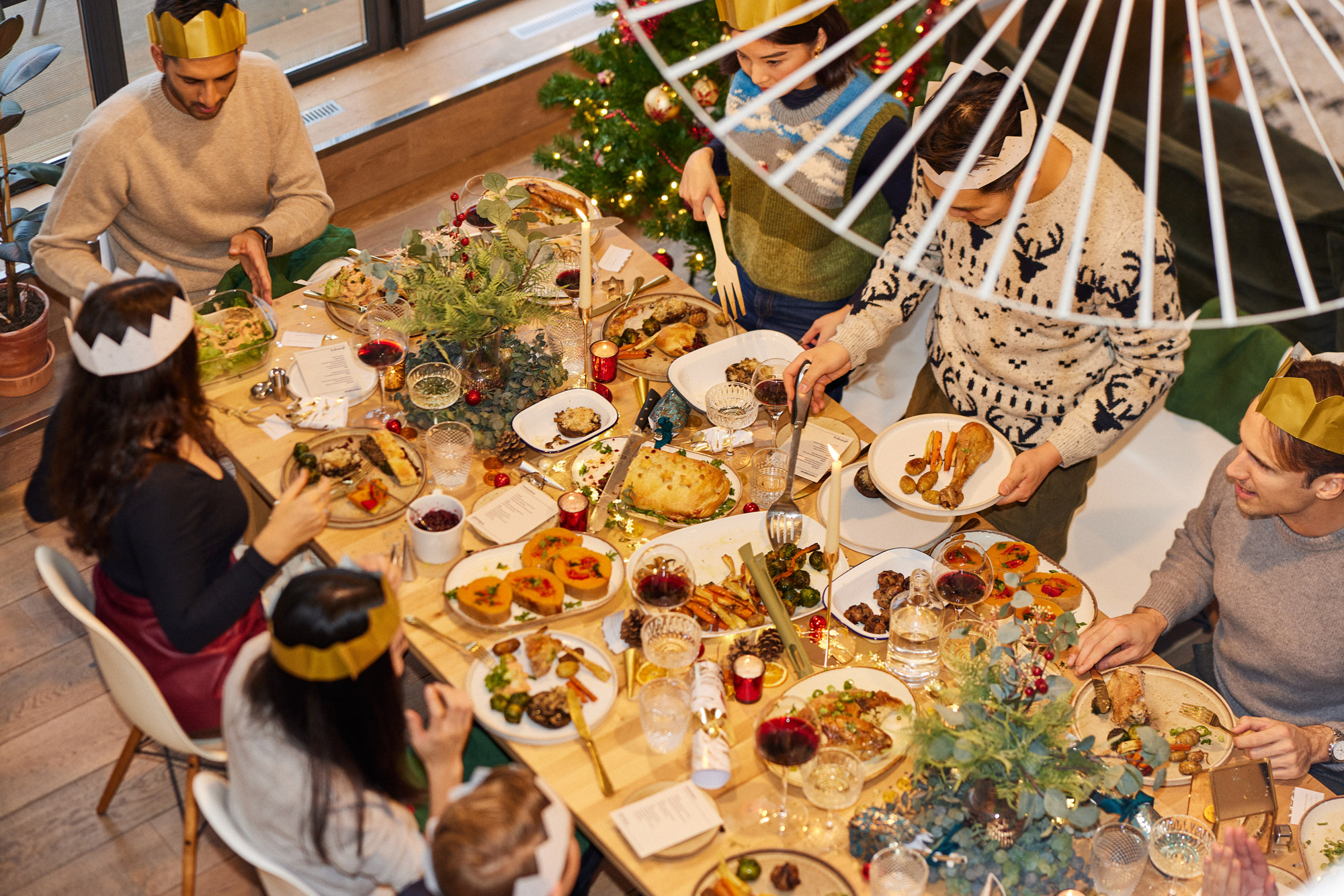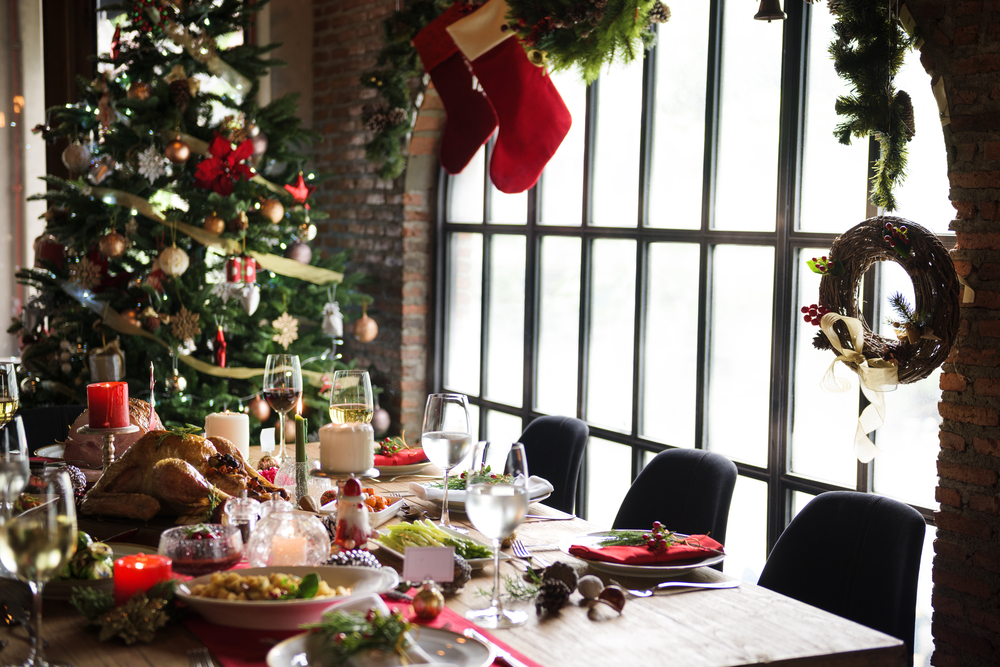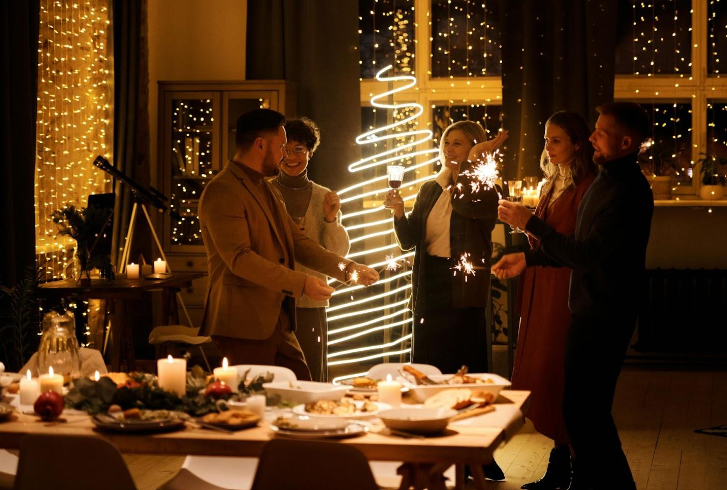German Christmas Dinner: A Journey Through History and Food
Historical Context of Christmas Food in Germany
Christmas Eve, or Heiligabend, is more than a festive occasion in Germany; it’s a deeply rooted tradition that dates back centuries. The celebration has evolved, reflecting changes in religious practices, societal norms, and cultural influences.
Traditionally, the Advent season leading up to Christmas was a time of fasting and spiritual contemplation for many Christians. During this period, people would often abstain from eating meat, dairy, and other indulgent foods.
Although Christmas Eve signalled the conclusion of this fasting phase, the custom of having a humble and modest meal continued to be observed. Hence, the traditional German Christmas food was often meatless in many regions, featuring fish, soups, and vegetables. Over time, this tradition gave way to more elaborate dishes, yet the essence of simplicity and humility remained.
Traditional German Christmas Dinner in Different Regions of Germany
To understand what Germany eats for Christmas dinner, it’s essential to recognise the country’s geographical influence. From the coastal North to the mountainous South, each region has contributed its own unique Christmas Eve traditions shaped by local customs, ingredients, and culinary techniques. This rich variety of regional dishes adds flavour and depth to the celebration, making Christmas dinner in Germany a reflection of its cultural diversity.
Northern Germany
In the coastal regions of Northern Germany, seafood plays a prominent role in Christmas Eve dinner. Dishes like pickled herring, shrimp, and baked fish are common, reflecting the area’s maritime heritage.
Southern Germany
The mountainous regions of Southern Germany are known for their hearty and robust cuisine. Christmas Eve may feature roast venison, spaetzle (German dumplings), and rich stews. The influence of neighbouring countries like Austria and Switzerland is evident in the use of cheese in fondue.
Eastern Germany
In Eastern Germany, carp is a traditional Christmas Eve dish, often fried or baked. Preparing the carp is a ritual in itself, with some families keeping the live fish in the bathtub before cooking. This tradition symbolises prosperity and renewal and is deeply rooted in the region’s history.
Western Germany
Western Germany, with its proximity to France and Belgium, showcases a fusion of flavours in its Christmas Eve menu. Dishes like beef rouladen, braised red cabbage, and potato pancakes blend German tradition and French elegance. The use of wine and fine pastries adds a touch of sophistication to the meal.
German Christmas Dinner Menu: Inspired Dishes for the Festive Season
While traditional German Christmas dishes hold a special place in holiday celebrations, there’s plenty of room for creativity when planning your menu. Drawing inspiration from the diverse regions of Germany, we’ve crafted a selection of festive dishes that reflect the spirit of a German Christmas dinner. These courses blend tradition with contemporary flavours, giving you a fresh take on the classic holiday feast.
Festive German Appetisers to Kickstart Your Feast
No German Christmas meal is complete without a selection of hearty appetisers to set the tone for the meal. Inspired by regional traditions, these starters bring warmth and flavour to the holiday table, giving your guests a delightful first taste of the festive feast.
1. Pickled Herring Salad
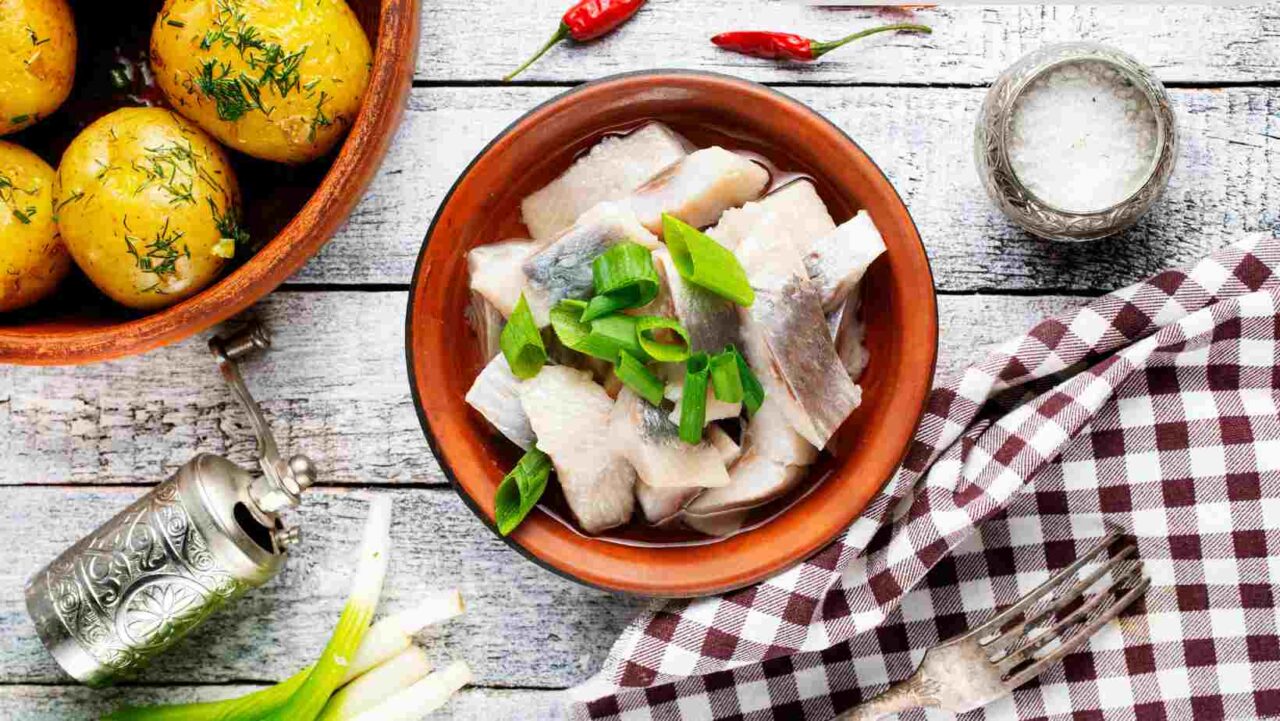
Pickled herring is a popular Northern German traditional Christmas food, especially along the coastal regions. Combine pickled herring with onions, apples, and gherkins for a refreshing blend of salty and sweet flavours. Serve chilled with rye bread or boiled potatoes.
Highlights
- Prep Time: 20 minutes.
- Budget: Moderate.
- Difficulty: Easy.
- Dietary Considerations: Gluten-Free, Contains Fish.
Pro Tip: Serve with rye bread or boiled potatoes to complement the dish’s tangy flavours.
2. German Pretzel Bites
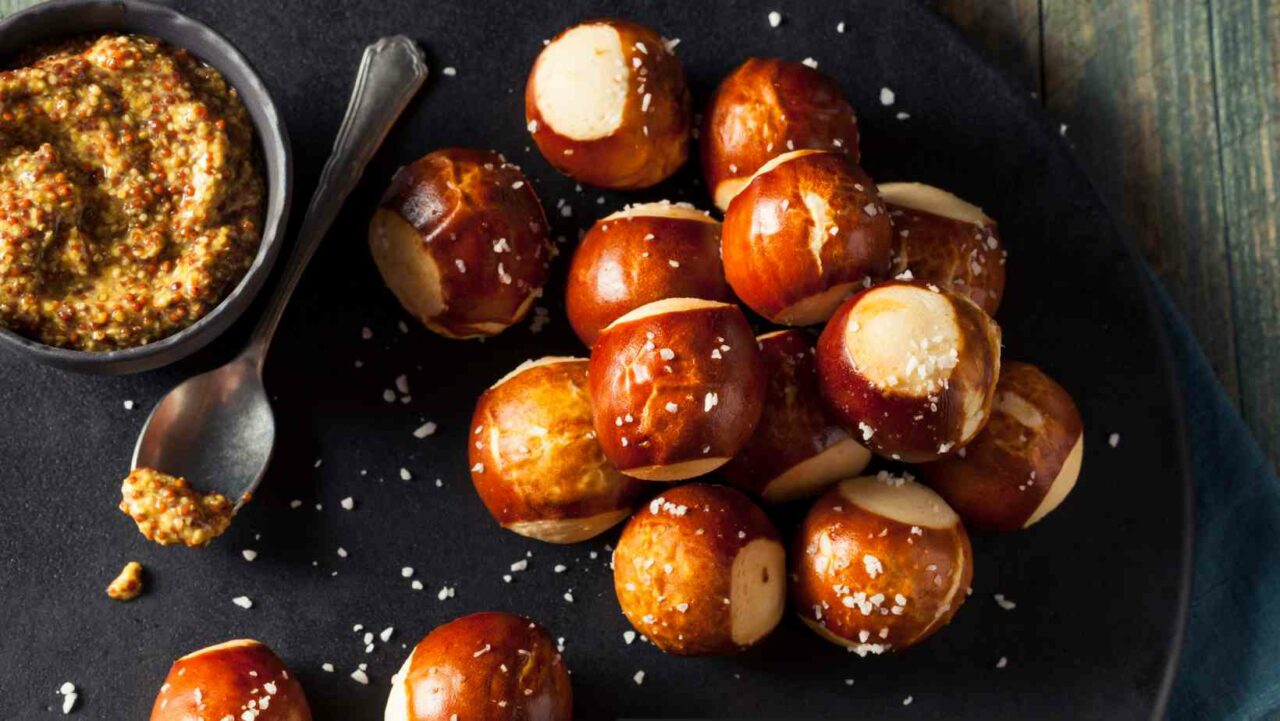
These mini pretzel bites bring a taste of Germany’s famous street food to your typical German Christmas dinner. Roll the dough into small pretzels or any shape you desire, boil briefly, then bake until golden brown. Soft and chewy with a golden-brown crust, they’re perfect for dipping in mustard or a rich cheese dip.
Highlights
- Prep Time: 30 minutes.
- Budget: Low.
- Difficulty: Medium.
- Dietary Considerations: Vegetarian.
Pro Tip: Sprinkle coarse sea salt on the pretzel bites for an authentic touch, and serve them warm for the best texture.
3. Pilzsuppe (Mushroom Soup)
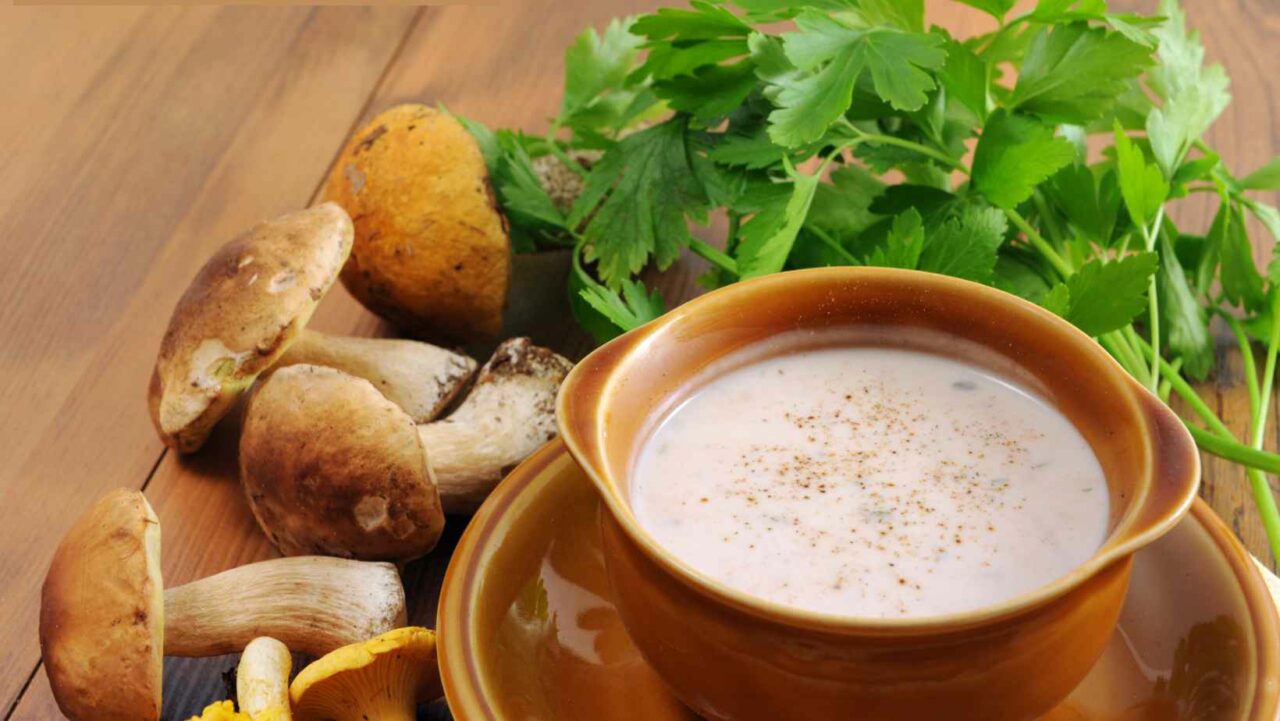
A rustic German mushroom soup made with wild mushrooms such as chanterelles or porcini. Sauté mushrooms with onions and garlic, then simmer in vegetable broth. You can add some cream to thicken it slightly, making it perfect for a comforting Christmas starter.
Highlights
- Prep Time: 25 minutes.
- Budget: Moderate.
- Difficulty: Easy.
- Dietary Considerations: Vegetarian, Gluten-Free.
Pro Tip: Garnish with fresh parsley or a drizzle of truffle oil to enhance the earthy flavours of the wild mushrooms.
Hearty German Main Courses to Warm Your Holiday Table
The main course is the star of any Christmas dinner, and in Germany, the options are both rich and satisfying. Whether you opt for traditional German Christmas dinner options or vegetarian twists, these dishes will ensure your feast is unforgettable.
1. Roast Goose with Apple Stuffing
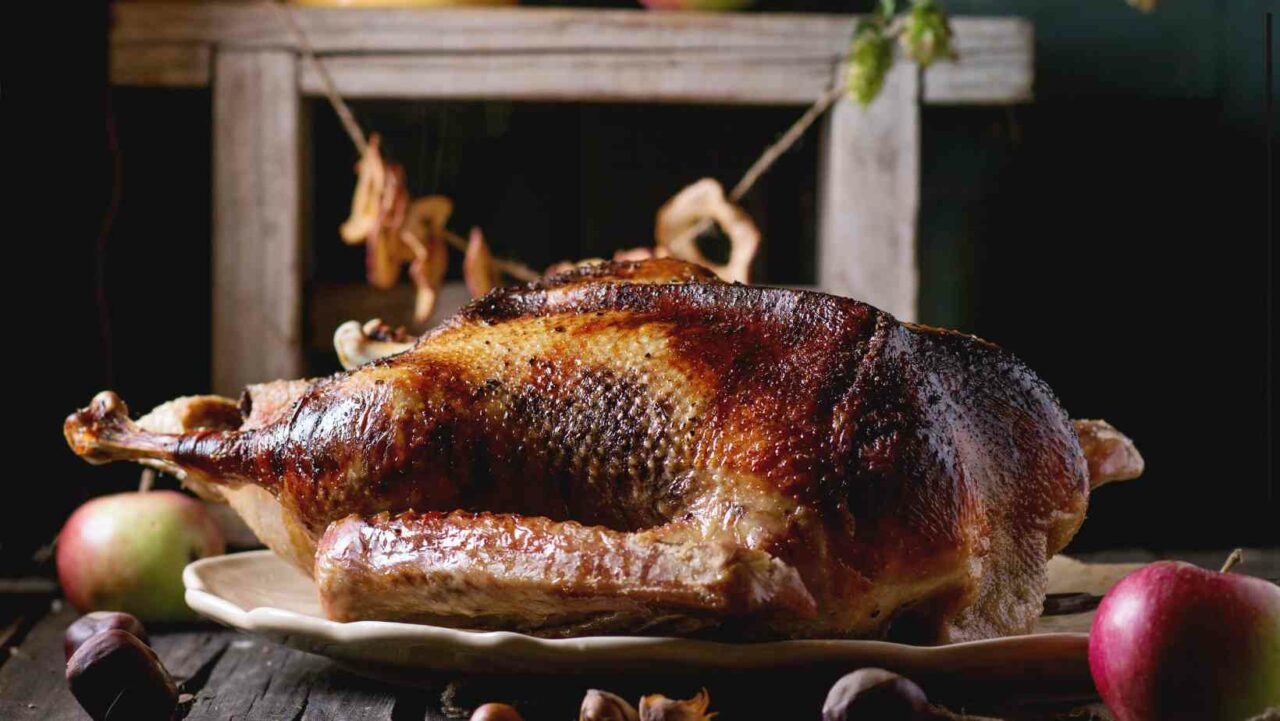
A classic German Christmas dish, roast goose is rich and indulgent, with a delicious apple stuffing that balances sweet and savoury flavours. Stuff the goose with a mix of diced apples, onions, breadcrumbs, and fresh herbs. Roast until the skin turns crispy and golden brown, basting occasionally with its own juices for tenderness.
Highlights
- Prep Time: 3 hours
- Budget: High
- Difficulty: Medium
- Dietary Considerations: Contains Meat
Pro Tip: Add a dash of fruity apple cider to the roasting pan for extra flavour and moisture.
2. Baked Carp with Lemon-Herb Butter
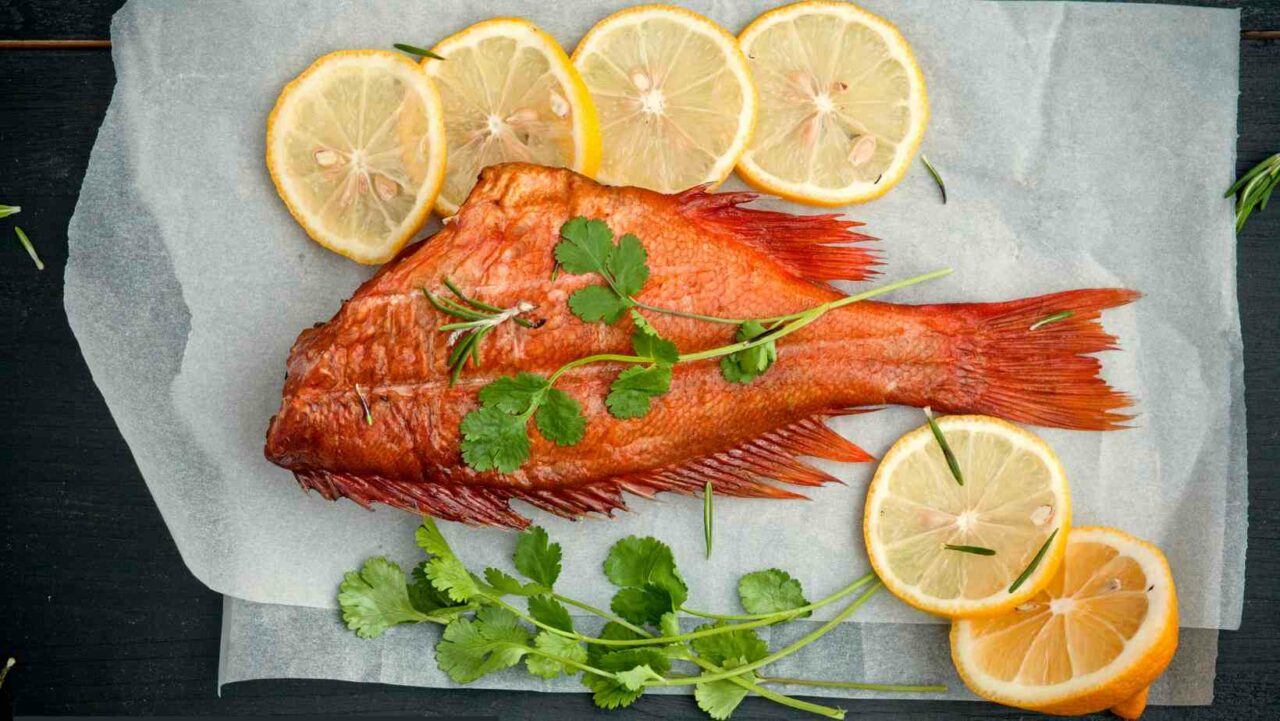
A traditional German Christmas Eve dish, baked carp is light yet flavourful, with a zesty lemon-herb butter sauce. Rub the carp with a blend of butter, lemon zest, and fresh herbs, then bake until the fish is tender and flaky. Serve with the lemon butter sauce drizzled on top.
Highlights
- Prep Time: 1 hour
- Budget: Moderate
- Difficulty: Medium
- Dietary Considerations: Gluten-Free, Contains Fish
Pro Tip: Garnish with fresh dill and lemon slices for a bright, festive presentation.
3. Kohlrouladen (Stuffed Cabbage Rolls)
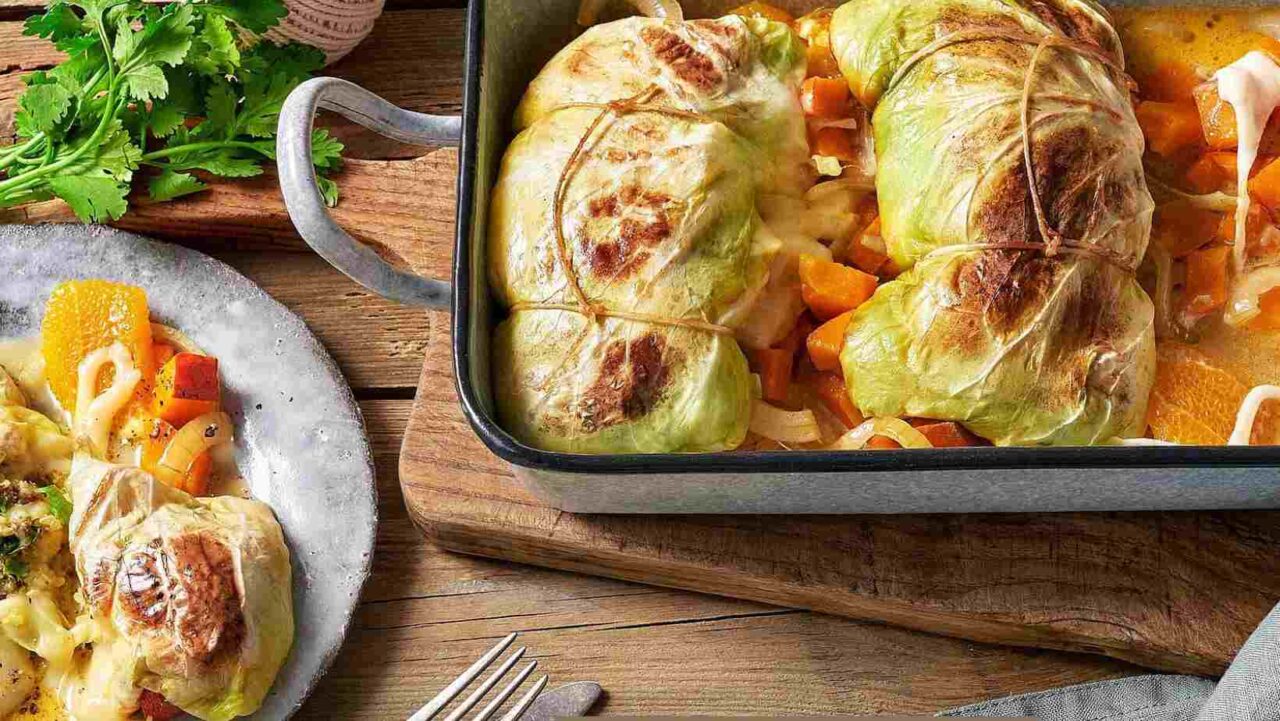
A vegetarian version of stuffed cabbage rolls, where large cabbage leaves are stuffed with a mixture of grains, vegetables, and herbs. This dish is hearty and satisfying, making it a great centrepiece for a meatless Christmas meal.
Highlights
- Prep Time: 1 hour.
- Budget: Moderate.
- Difficulty: Medium.
- Dietary Considerations: Vegetarian and Vegan-Friendly.
Pro Tip: Serve with a light tomato sauce or a mushroom gravy for added richness.
Classic German Side Dishes to Complete Your Feast
German Christmas dinners aren’t complete without hearty side dishes that complement the main course. These sides add texture, flavour, and a touch of tradition to your festive table.
1. Potato Salad with Bacon and Chives
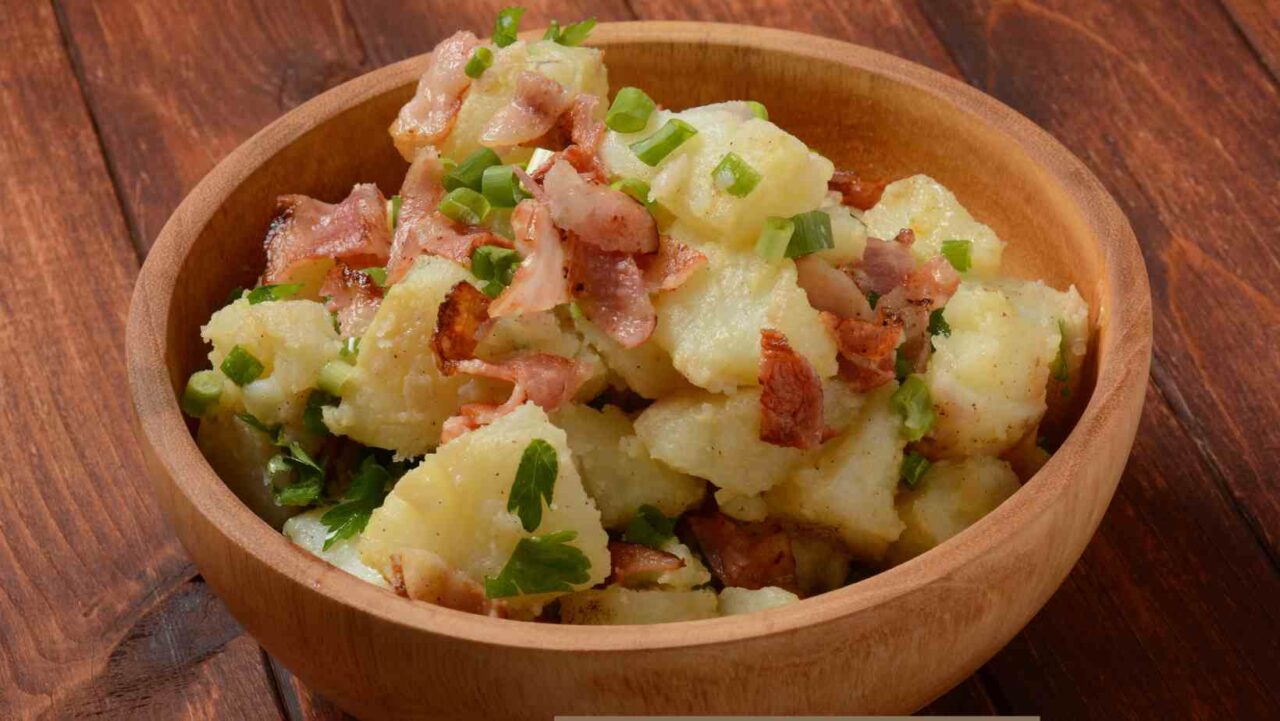
This classic German potato salad is elevated with crispy bacon and fresh chives, giving it a gourmet touch. For an old-fashioned German potato salad recipe, toss boiled potatoes with bacon, chives, and a tangy vinegar and mustard-based dressing to make a warm, comforting side dish. You can serve this with sausages like Bratwurst or Frankfurter for a traditional feel.
Highlights
- Prep Time: 30 minutes.
- Budget: Moderate.
- Difficulty: Easy.
- Dietary Considerations: Contains Meat and Gluten-Free.
Pro Tip: Add a drizzle of beef stock or consomme to the dressing for a flavourful punch.
2. Braised Red Cabbage with Apples
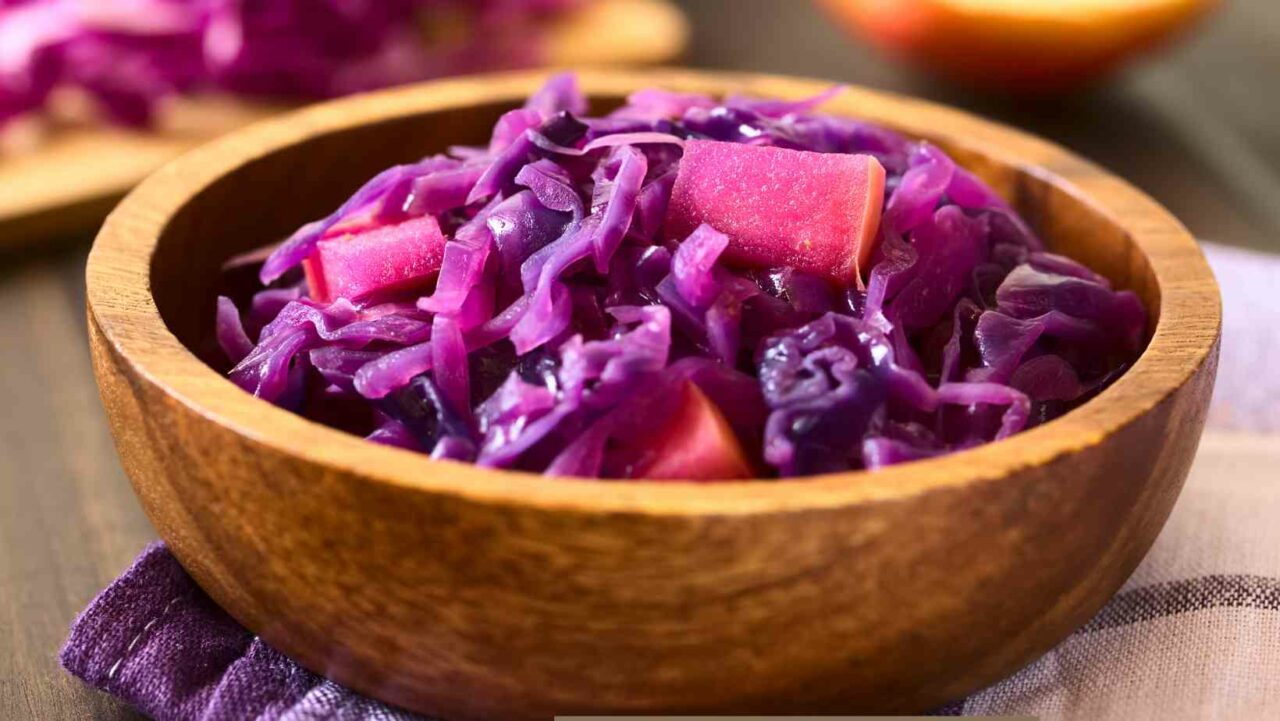
A sweet and tangy side dish made by slow-cooking red cabbage with apples, vinegar, and a hint of sugar. This dish is a staple on the German Christmas dinner menu, perfectly balancing the richness of the main courses.
Highlights
- Prep Time: 1 hour.
- Budget: Low.
- Difficulty: Easy.
- Dietary Considerations: Vegetarian, Vegan and Gluten-Free.
Pro Tip: Add a splash of red wine or apple cider vinegar for extra depth of flavour.
3. Spaetzle (German Dumplings)
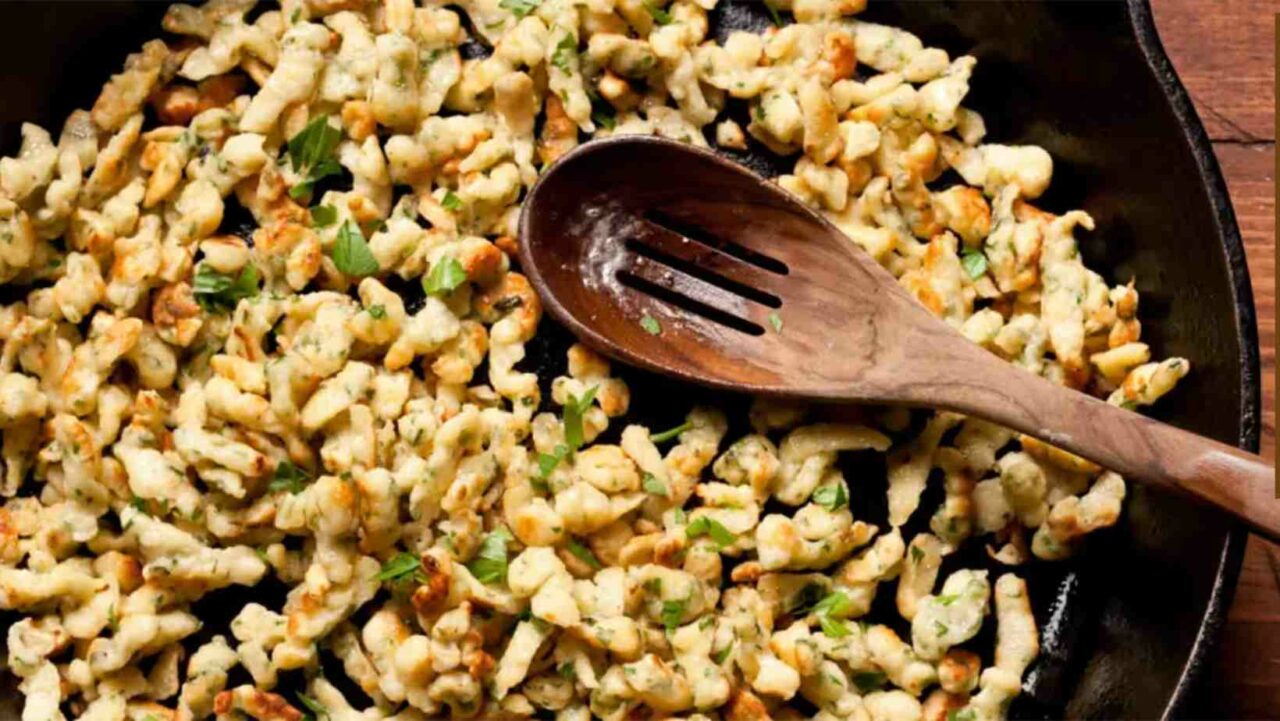
Soft and buttery, these small dumplings are a versatile German side that pairs beautifully with rich dishes. Make the dough, drop small pieces into boiling water, then toss with butter and herbs for a simple yet satisfying side.
Highlights
- Prep Time: 45 minutes.
- Budget: Low.
- Difficulty: Medium.
- Dietary Considerations: Vegetarian.
Pro Tip: Saute the cooked Spaetzle in butter for a crispy texture.
Sweet German Desserts to End Your Christmas Feast
No traditional German Christmas eve dinner is complete without a selection of sweet treats. These traditional desserts offer a perfect ending to the festive meal, combining seasonal spices, fruits, and nuts.
1. Christmas Stollen
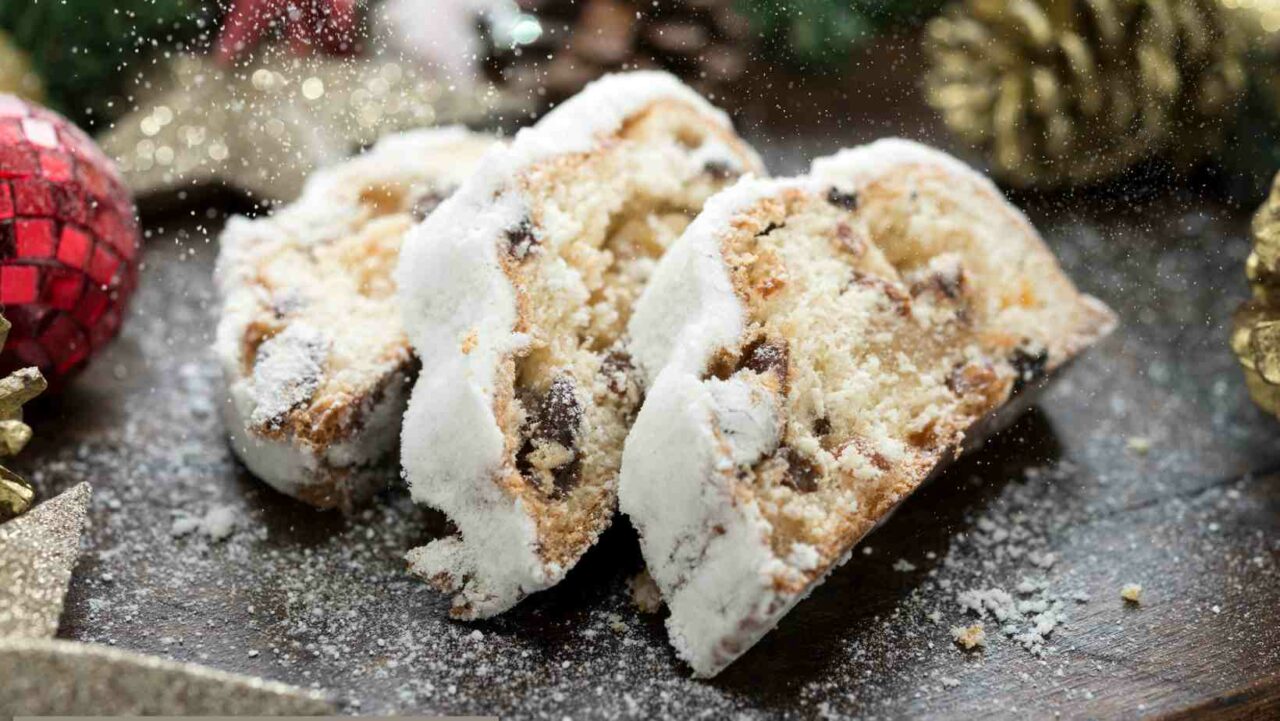
A festive bread filled with marzipan, dried fruits, and nuts, Christmas Stollen is dusted with powdered sugar to give it a snowy holiday feel. Serve sliced for a rich, sweet treat to end the meal.
Highlights
- Prep Time: 2 hours
- Budget: Moderate
- Difficulty: Medium
- Dietary Considerations: Contains Nuts, Dairy
Pro Tip: Wrap the Stollen in foil and store it for a few days before serving to let the flavours deepen.
2. Lebkuchen Cookies
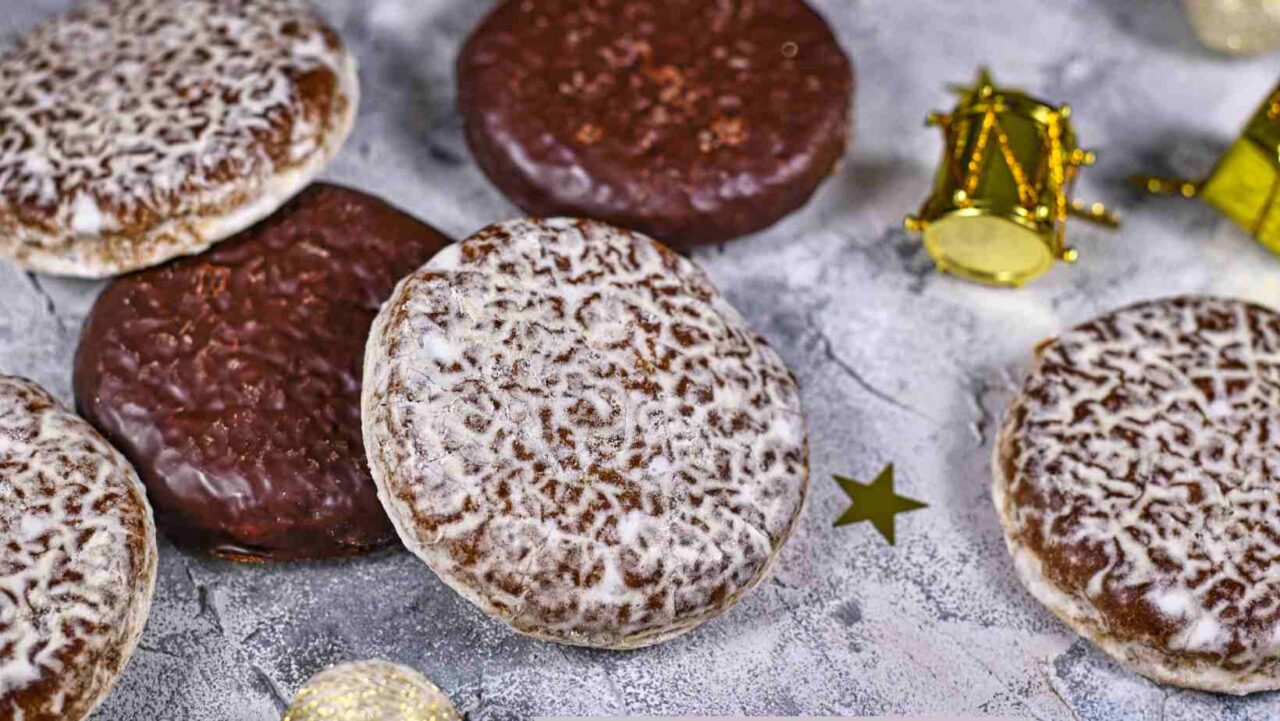
These traditional spiced cookies, flavoured with cinnamon, cloves, and ginger, are a Christmas classic in Germany. Shape the dough into rounds, bake, and top with a sugar glaze or chocolate for a festive finish.
Highlights
- Prep Time: 45 minutes.
- Budget: Low.
- Difficulty: Easy.
- Dietary Considerations: Vegetarian.
Pro Tip: Add a pinch of crushed black pepper for an extra kick of spice, enhancing the warmth of the cookies.
3. Apfelstrudel (Apple Strudel)
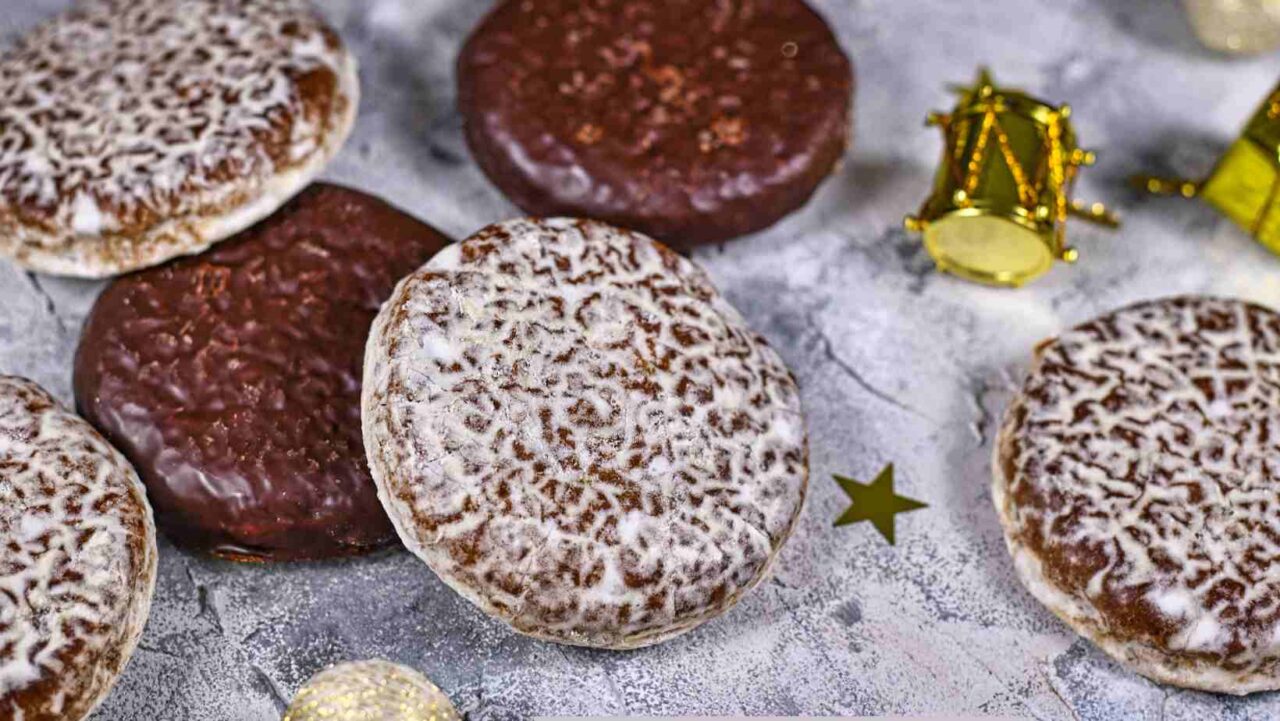
A classic dessert with layers of flaky pastry wrapped around a spiced apple filling. The apples are mixed with cinnamon, sugar, and raisins, making this a perfect festive dessert.
Highlights
- Prep Time: 1.5 hours.
- Budget: Moderate.
- Difficulty: Medium.
- Dietary Considerations: Vegetarian.
Pro Tip: Serve warm with a side of cream or ice cream to enhance the festive feel.
Whether you're hosting a special celebration dinner, looking for a chef during your holiday or weekly meal prep, we will match you to the perfect chefs.
Start hereTraditional German Christmas Drinks to Raise Your Spirits
A German Christmas dinner isn’t complete without festive drinks to toast the occasion. Whether warming up with a spiced mulled wine or enjoying a hearty local brew, these beverages will add cheer to your holiday gathering.
1. Glühwein (Mulled Wine)
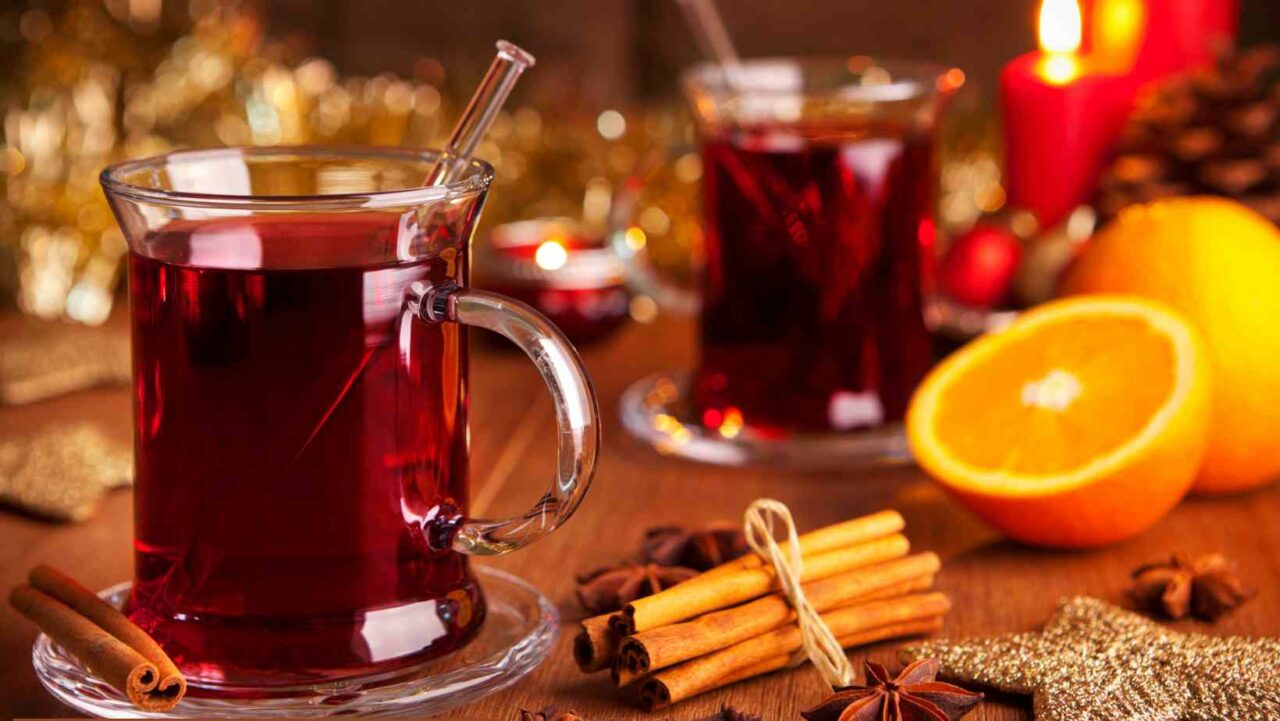
A warm, spiced wine perfect for Christmas. Simmer red wine with cinnamon, cloves, star anise, and citrus fruit slices. Serve with a cinnamon stick for stirring.
Highlights
- Prep Time: 20 minutes.
- Budget: Low.
- Difficulty: Easy.
- Dietary Considerations: Contains Alcohol.
Pro Tip: For a little extra kick, add a shot of brandy and garnish with orange slices for a festive touch.
2. German Beers
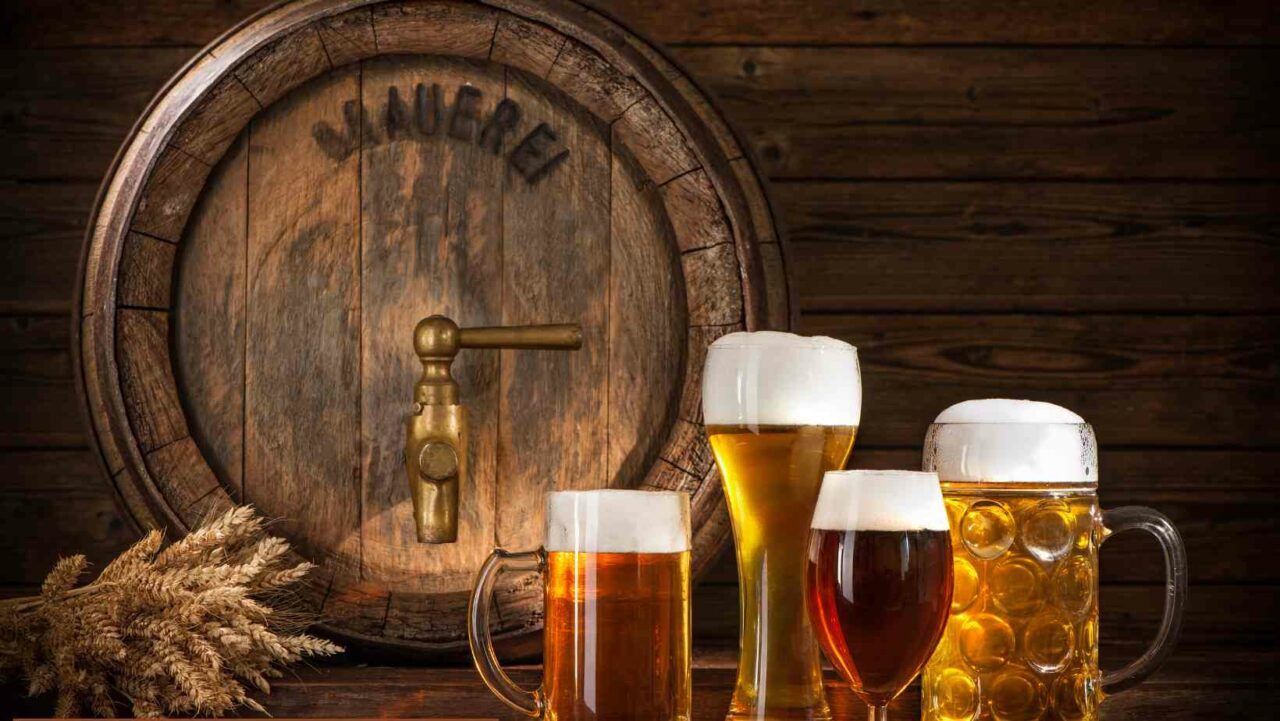
Offer a selection of local German brews to complement the rich holiday meal. From crisp lagers to dark, malty bocks, there’s a beer to match every dish.
Highlights
- Prep Time: None (just chill).
- Budget: Moderate.
- Difficulty: Easy.
- Dietary Considerations: Contains Alcohol.
Pro Tip: Serve beer in chilled glasses for maximum refreshment and offer a range of options, from light to dark.
3. Hot Chocolate with Peppermint
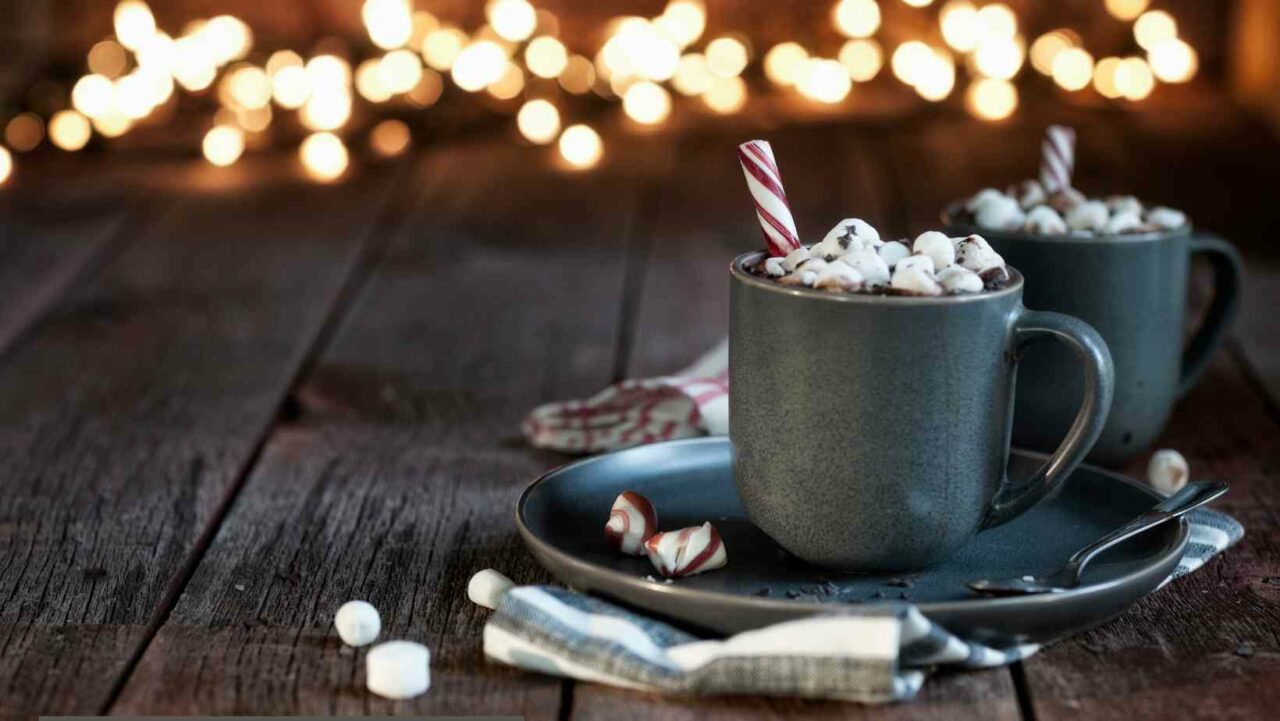
A cosy, non-alcoholic option for all to enjoy. Make rich hot chocolate and stir in peppermint extract for a festive flavour. Serve with candy canes for a seasonal touch.
Highlights
- Prep Time: 15 minutes.
- Budget: Low.
- Difficulty: Easy.
- Dietary Considerations: Vegetarian and Dairy-Free (with plant-based milk).
Pro Tip: Use dark chocolate for a richer flavour and sprinkle with cocoa powder or mini marshmallows for extra indulgence.
Unwrap the magic of a German Christmas Feast without the Hassle
Whether you’re of German descent or simply intrigued by global culinary traditions, our German Christmas dinner guide will inspire you to embrace the feast of tradition. The feast is a celebration that transcends the boundaries of a meal and one that can be rarely found in any restaurants. However, preparing such an elaborate and authentic meal can be a overwhelming, especially with the fine details involved in each dish.
Hiring a private chef takes the pressure off. You can enjoy the celebration while they handle everything—from sourcing high-quality ingredients to ensuring every course is cooked to perfection. Platforms like yhangry offer access to experienced chefs who bring the best of German cuisine right to your table.
From the classic roast goose to the delicate stollen, these private chefs can tailor any dish to match your preferences so that you can savour the spirit of a German Christmas in comfort.
- What is the German Christmas angel tradition?
-
In Germany, Christmas angels, or Weihnachtsengel, are an important part of holiday decorations and traditions. These angel figurines, often made of wood or porcelain, symbolise peace and the heralding of good news. Traditionally, they are placed atop Christmas trees or displayed around the home as a reminder of the angels present at the birth of Christ. Some regions, like Erzgebirge, are famous for crafting intricate Christmas angels, which are passed down through generations as cherished heirlooms.
- What is the most popular meal to have on Christmas Eve in Germany?
-
A popular meal on Christmas Eve in Germany is carp, especially in Eastern regions. Many families serve the fish baked or fried. In other parts of the country, simpler meals such as sausages with potato salad are also a common part of German Christmas meals.
- What is the Christmas Eve tradition in Germany?
-
In Germany, Christmas Eve, or Heiligabend, is a time for family gatherings, church services, and a festive meal. Traditionally, families exchange gifts in the evening after attending mass, a custom known as Bescherung. The evening is spent in a cosy, intimate atmosphere with loved ones.
- How can I impress my guests with a traditional German Christmas dinner?
-
Impressing your guests with a traditional German Christmas dinner starts with serving classic dishes like roast goose, red cabbage, and Stollen. Focus on using high-quality ingredients and taking time with slow-cooked dishes to bring out the best flavours. Setting the scene with festive décor and incorporating German traditions, such as a Christmas tree adorned with candles, will also enhance the experience. For a truly stress-free way to impress, you can hire a private chef from platforms like yhangry to handle the cooking for you.
